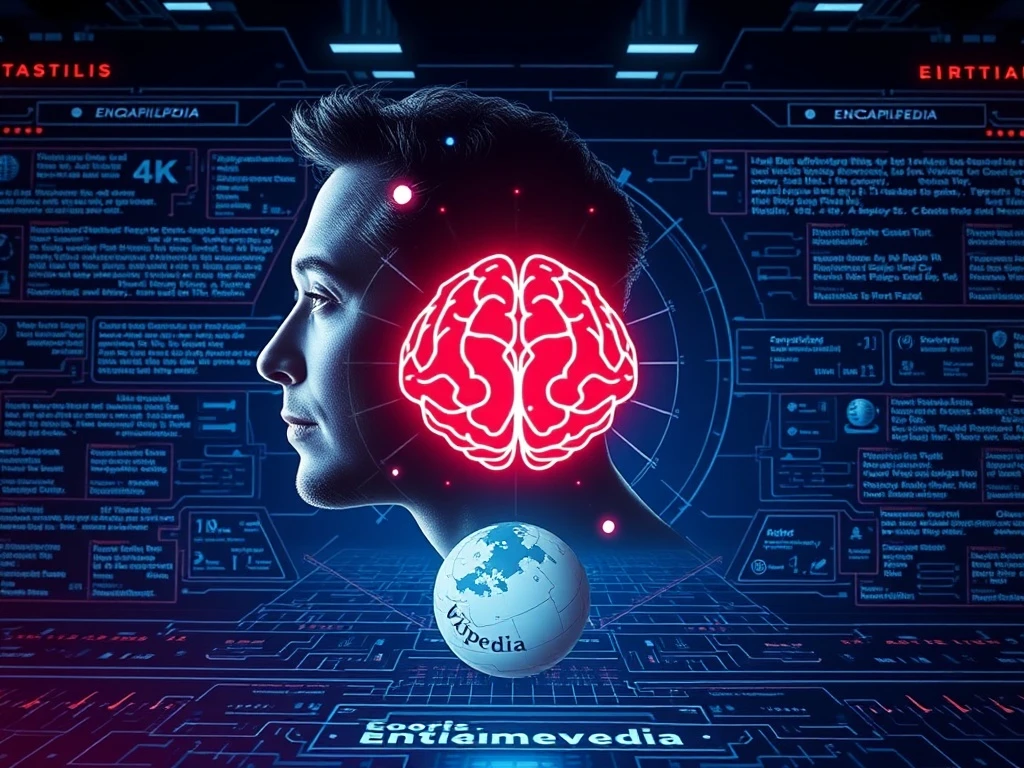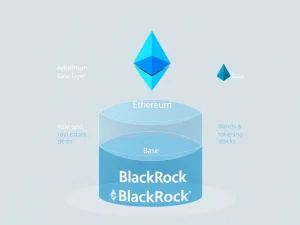Grokipedia Unleashed: Elon Musk’s Ambitious AI Encyclopedia Challenges Wikipedia

In the rapidly evolving landscape of artificial intelligence and digital information, a significant new player has emerged. For those keenly observing the intersection of technology and knowledge, the launch of Grokipedia by Elon Musk marks a pivotal moment. This open-source, AI-powered online encyclopedia positions itself as a direct Wikipedia alternative, promising a new approach to truth and content moderation. This development holds particular interest for the crypto community, which often values decentralization, transparency, and new technological paradigms. As AI continues to reshape our digital lives, understanding platforms like Grokipedia becomes crucial for navigating the future of information.
Unveiling Grokipedia: Elon Musk’s Vision for an AI Encyclopedia
Elon Musk officially launched Grokipedia, his AI-powered and ‘truth’-focused answer to Wikipedia, on a recent Monday. This launch follows ongoing discussions and disagreements with the incumbent platform regarding its editorial practices. Musk articulated his vision through a series of posts on X, formerly Twitter, highlighting Grokipedia’s core tenets. “Grokipedia is fully open source,” Musk stated, “so anyone can use it for anything at no cost.” He further emphasized the platform’s ambitious goal: “truth, the whole truth and nothing but the truth.” This commitment to absolute truth forms the bedrock of the new AI encyclopedia.
The service experienced a brief delay prior to its official debut. Musk reportedly halted the launch to “purge out the propaganda” from Grokipedia’s initial content. This action underscores his strong stance against perceived biases and misinformation. Following its eventual launch, the platform reportedly crashed temporarily. However, it quickly came back online, demonstrating resilience. At the time of writing, Grokipedia functions fully, boasting over 885,000 articles. While specific operational details remain somewhat sparse, its AI integrations clearly differentiate its organizational structure from Wikipedia’s established model.
Grok AI at the Helm: Content Generation and Moderation
A key differentiator for Grokipedia lies in its reliance on Grok AI. Unlike Wikipedia, which primarily depends on a blend of volunteer editors and automated tools, Grokipedia gives X’s Grok AI a leading role. This AI dictates and moderates content on the platform. Musk elaborated on this unique operational model. He explained that users retain the ability to add or request changes to content. However, the AI makes the final decision on these submissions. “Grok generated about 1M articles using a lot of compute,” Musk wrote on X. He added, “You will be able to ask Grok to add/modify/delete articles and it will either take the action or tell you it won’t and why.” This direct AI involvement signifies a paradigm shift in how encyclopedic knowledge is curated and maintained.
Grokipedia vs. Wikipedia: A Battle for Perspective
The launch of Grokipedia intensifies an ongoing debate about information bias and editorial control. Musk has frequently criticized Wikipedia, alleging its bias towards left-leaning political and cultural viewpoints. Consequently, Grokipedia aims to offer a different perspective. One X user quickly highlighted a notable difference between articles on George Floyd. The Grokipedia article’s first paragraph emphasized Floyd’s extensive criminal record. Conversely, the Wikipedia article underscored his killing by a “white” police officer. “We will never be perfect, but we shall nonetheless strive towards that goal,” Musk commented on the incident. This example illustrates the differing editorial philosophies. The Grokipedia article on “Wikipedia” itself, while not directly quoting Musk’s criticisms, highlights studies suggesting Wikipedia’s left-wing bias. “Studies analyzing article language and tone reveal deviations from neutrality,” the article reads. It suggests that “right-leaning political figures are more frequently depicted negatively compared to left-leaning counterparts.” This indicates that Wikipedia’s policies may not fully mitigate ideological skews from editor demographics and source selection.
Addressing Bias: Elon Musk AI’s Approach to Neutrality
The challenge of achieving true neutrality in an encyclopedia is immense. Grokipedia, powered by Elon Musk AI, claims to tackle this head-on. However, its own articles have drawn scrutiny. Wikipedia’s article on Grokipedia cites concerns from critics. These critics suggest that Grokipedia has the potential to lean towards “far-right” perspectives or favor Musk’s viewpoints. NBC News, for instance, noted a specific omission. The Grokipedia entry for Musk did not mention a hand gesture he made in January 2025, which many interpreted as a Nazi salute. Wikipedia’s article, however, includes this detail. These comparisons highlight the ongoing tension and the difficulty of presenting an entirely unbiased narrative, regardless of the platform or its underlying technology. The pursuit of “truth” becomes complex when different platforms interpret and prioritize facts differently.
The Future of Information: Grokipedia as a Wikipedia Alternative
Grokipedia represents a bold experiment in the realm of digital knowledge. By leveraging advanced AI, particularly Grokipedia, Musk aims to create a more objective and comprehensive information source. The platform’s open-source nature aligns with principles often championed in the crypto and open-source software communities. This transparency could foster trust and collaboration. Nevertheless, the role of AI as the ultimate arbiter of truth raises important questions. Can an algorithm truly be free from bias, especially when trained on vast datasets that may reflect existing societal prejudices? Only time will tell if Grokipedia can fulfill its ambitious promise. Its success will depend on its ability to build credibility and maintain a truly neutral stance, offering a compelling Wikipedia alternative that resonates with a broad audience. The ongoing evolution of Grokipedia will undoubtedly provide valuable insights into the future of AI in content creation and the dissemination of knowledge.









